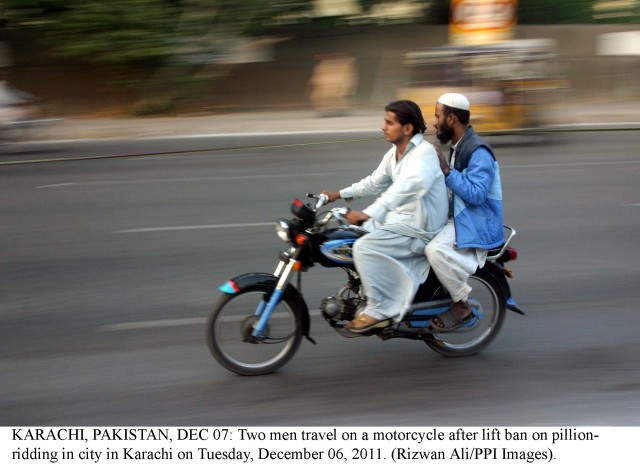SHC questions rationale behind ban on pillion riding
NGO alleges that the ban violates fundamental rights of the citizens.

PHOTO: PPI/FILE
A non-governmental organisation, United Human Rights Commission of Pakistan, has taken the matter up in the court. Rana Faizul Hasan, the NGO’s representative, submitted that two million people of Karachi would suffer the most, both in terms of fares and time, as they have to travel in buses or other private transport vehicles to travel to work.
Referring to the Abbas Town bomb blast, in which police suspect that the attack was carried out with an explosives-laden four-wheeler, Hassan questioned “whether motorcycles were being used in all terrorist activities.”
“To hush up its inabilities, the government has enforced a ban on pillion riding which is equal to committing economic genocide in a city which already lacks better transportation facility,” he alleged in his application.
Hassan argued that the ban was violation of the citizens fundamental rights guaranteed under the Articles 4, 8, 9 and 25 of the Constitution.
Appearing in person, he asked the judges to set aside the notification regarding pillion riding ban. He also urged them to grant a stay order against the operation of the notification. After initial hearing, the bench headed by Justice Maqbool Baqir, issued notice to the chief secretary, law and home secretaries to file their comments by the next date of hearing.
Published in The Express Tribune, March 8th, 2013.



















COMMENTS
Comments are moderated and generally will be posted if they are on-topic and not abusive.
For more information, please see our Comments FAQ